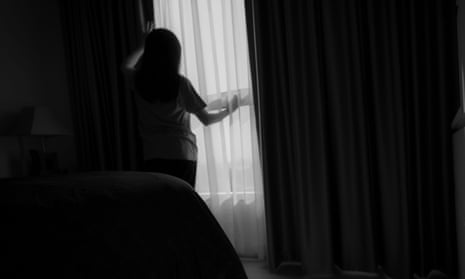More than 60 women have been violently killed this year, many by intimate partners, and experts warn that the holidays are a particularly dangerous time.
Counting Dead Women Australia – which is run by Destroy the Joint researchers – tracks “every known death due to violence against women” and says the number this week reached 62.
That figure includes a death on Wednesday, after a man allegedly stabbed two women in Plympton, South Australia. One woman, Julie Seed, died at the scene, and the other is in a stable condition in the Royal Adelaide hospital.
In that case, the accused was not believed to be known to the women, and had been discharged from hospital (where he was being treated for a mental health condition) two days previously.
The total figure is not entirely clear – Australian Femicide Watch puts the number at 74.
 00:03:47Sussan Ley reads the names of the 60 women killed in Australia this year – video
00:03:47Sussan Ley reads the names of the 60 women killed in Australia this year – video
The federal government has announced a new system to track Australians killed by a current or former partner.
Statistics collated by No to Violence (NTV), a peak body working with men to stop family violence, show “significantly more family and domestic violence incidents reported to police forces across Australia throughout the Christmas and New Year period”.
They show an 11% higher number of family incidents in Victoria in December in 2021 compared with the yearly average; a quarter of a year’s family violence murders in New South Wales in January 2022; and a 58% higher level of domestic violence incidents in the Northern Territory, a 112% rise in Queensland and a 75% rise in Tasmania on New Year’s Day.
The NTV chief executive officer, Phillip Ritter, said there were a range of reasons.
“Financial pressures are particularly acute right now with the cost of living crisis,” he said.
“There may be tensions between ex-partners with shared custody arrangements, including negotiating changeover times and locations.
“People might have differing expectations around festivities, and they may be isolated from their usual community or other supports.
“On top of that there may be increased use of alcohol or other substances.”
Ritter said families might restrict access to gender-affirming healthcare for trans and gender diverse people, or restrictions on practising their religion, or people might be suffering reproductive coercion that could be exacerbated.
“The list goes on,” he said.
“It can be harder for women to stay safe when family members are all on holidays and therefore at home more.
“It can be harder to get away from a man who is using violence against you – a man who may be escalating his use of violence in response to the situation.”
According to the latest Australian Institute of Criminology Homicide in Australia report, there were 2,102 intimate partner homicides between 1989 and 2021.
Three in four (1,589) of the victims were female.
Overall, domestic and acquaintance homicide rates halved in that period.
skip…
2023-12-23 14:00:33
Link from www.theguardian.com
















